#Milosch
Explore tagged Tumblr posts
Audio
“Милошч (Milosch)” by Kirov/Saint-Petersburg, Russia-based post-punk band Черная Речка (Chernaya Rechka) off of their self-titled 2019 release
#post punk#Russian postpunk#postpunk music#Russian music#Черная Речка#Chernaya Rechka#Милошч#Milosch#music#2010s post punk#2010s music#2019
10 notes
·
View notes
Photo

Great day of polo!! 2-0 at the Emory round robin tournament!! So proud of and grateful to coach these ladies! GO YELLOW JACKETS!! #rollbees #womenswaterpolo #cwpa #gatech #georgiatechuniversity #bigmoney #milosch #georgiatech #yellowjackets🐝 #yellowjackets #waterpolo (at Emory University Woodruff P.E. Center) https://www.instagram.com/p/B4YTk77gfp0/?igshid=8xud7qoah516
#rollbees#womenswaterpolo#cwpa#gatech#georgiatechuniversity#bigmoney#milosch#georgiatech#yellowjackets🐝#yellowjackets#waterpolo
1 note
·
View note
Photo

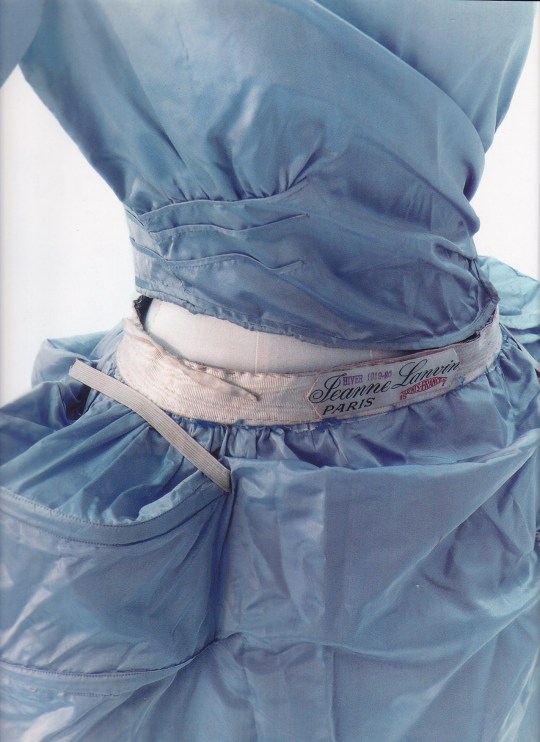


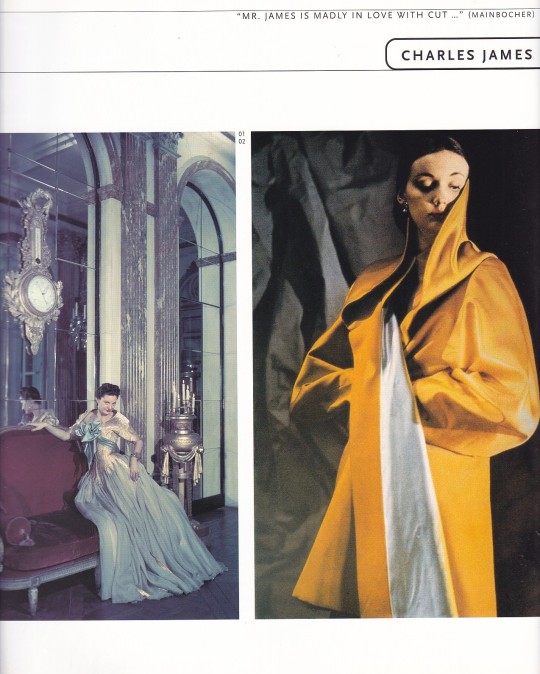
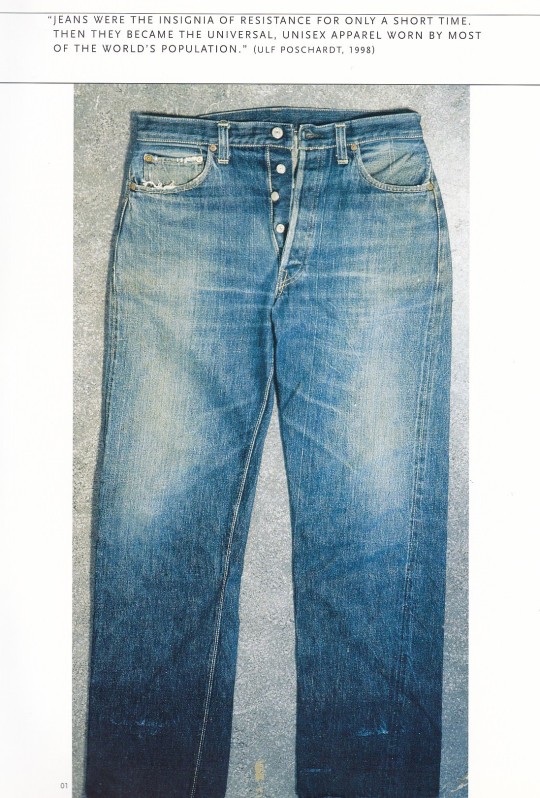
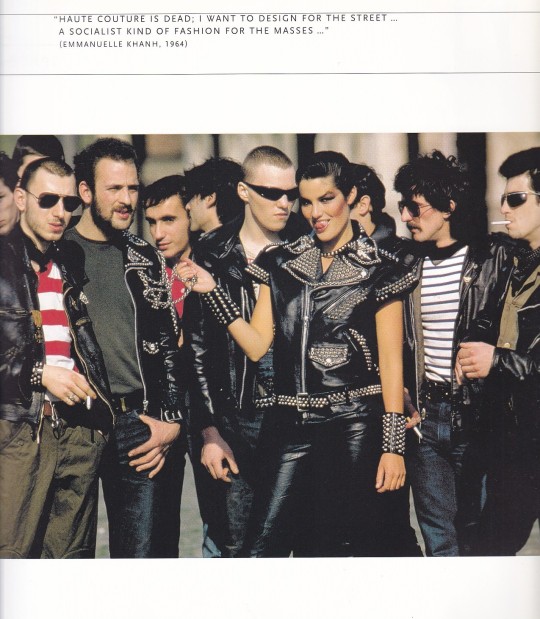
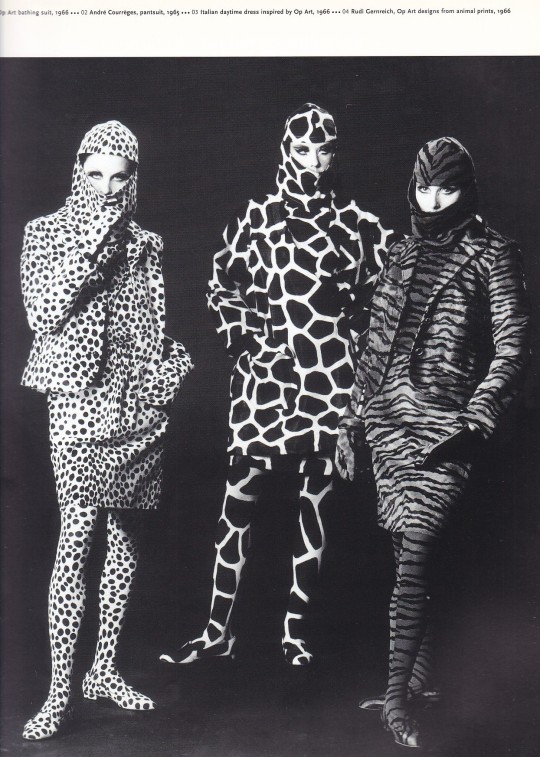

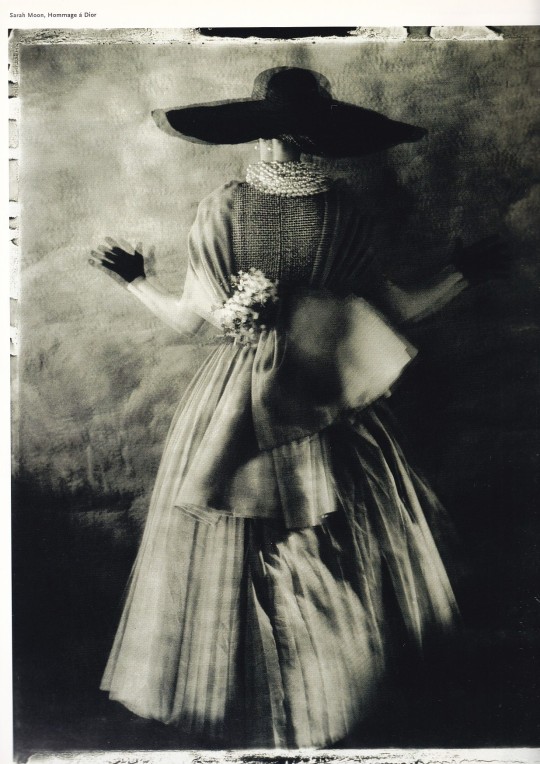
Icons of Fashion
The 20th Century
Edited by Gerda Buxbaum with contributions from Andrea Affaticati, Gerda Buxbaum, Deanna Farneti Cera, Carlo Ducci, Jane Milosch, Caroline Rennolds Milbank,Valerie Steele and others.
Prestel, Munich 1999, First Edition,192 pages, Harcover, 24 x 30 cm., 329 color and 143 b/w illustrations, ISBN 978-3791321615
euro 35,00
email if you want to buy [email protected]
An exploration of the 20th-century history of fashion which divides the century into 11 stylistic periods. It includes the haute couture, the famous and the radical fashion trends.
A boldly rendered twentieth-century fashion history spans the entire tempestuous century, featuring the key stylistic periods, designers, and celebrities who moved fashion along at its frenetic pace. From Coco Chanel to Christian Dior, Kenzo to Versace, grunge to haute couture, every period and major name in twentieth-century fashion is included in this comprehensive collection of fascinating photographs, drawings, and texts. Organized into sections according to style, it features double-page spreads highlighting every aspect of fashion: designers, models, critics, and fashion photographers. Gorgeous images by Sarah Moon, Peter Lindbergh, Nick Knight, Mario Testino, and others capture the attitudes and artistry of fashion as it evolved over the decades. As glamorous as its subject, this colourful survey will provide inspiration for anyone fascinated with the world of fashion.
09/12/21
orders to: [email protected]
ordini a: [email protected]
twitter: @fashionbooksmi
instagram: fashionbooksmilano, designbooksmilano tumblr: fashionbooksmilano, designbooksmilano
#Fashion Icons#20th Century#Peter Lindbergh#Sarah Moon#Mario Testino#Nick Knight#Chanel#Dior#Kenzo#Versace#YSL#Lanvin#Erté#Charles James#Jeans#Courrèges#Gernreich#Helmut Lang#fashion books#fashionbooksmilano
81 notes
·
View notes
Photo
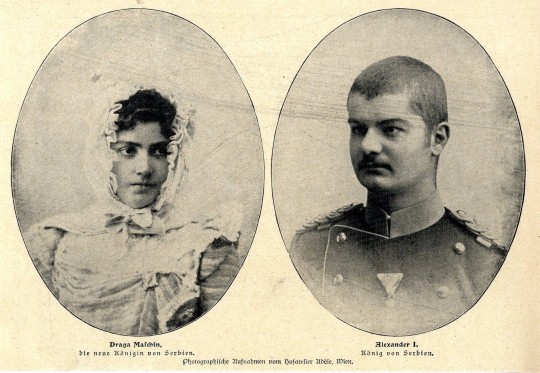


A new royal romance following on the dream of the Crown Prince of Roumania, who wished to be united legally to Mdlle. Varesco a lady of his mother's suite, as well as on the marriage of Archduchess Stephanie with a simple count, and on the recent wedding of the Crown Prince of Austria with the Countess Sophie Chotek would lead one to believe that the poetic days of the past are likely to be revived, when every pretty milkmaid may hope to find a crown laid at her feet by some fairy prince. Scarcely has the world revived from the shocks administered by the proofs of so much disinterested and simple affection ere we learn that yet another monarch would play the part of King Cophetua, for the King of Servia, who is just twenty-four, is to marry a widow, Madame Draga Maschin, who is forty-two, and who was formerly a lady-in-waiting to his mother. Servia has watched the romance with consternation.
The affair is thoroughly in keeping with the traditions of the house of Obrenovitch, the history of which has scarcely been heroic. The first of the race, Milosch Obrenovitch, was the son a peasant who managed to oust Kara George, the liberator of Servia. He became Prince of Servia in 1829, was forced to abdicate ten years later, and after a regime of the son of Kara George was recalled in 1858 and died in 1860. He was succeeded by his son Michael, who had reigned in his stead for two years (1840-2) who was recalled and was assassinated in 1868 at Belgrade by the partisans of the Kara Georgevitch family. He in turn was succeeded by his second cousin, Milan, who was raised to the kingship of Servia eighteen years ago. Milan's hopeless incompetency in public and private life is a matter of familiar history, and culminated in his divorce from his wife, Natalie, the daughter of a Russian, Colonel Keschko. Milan at last abdicated in favour of his son in 1889. All sorts of complications worthy of topsy-turvy opera have since intervened. The son, for instance, recalled the dethroned King in 1894 and got the divorce proceedings between his father and mother annulled.
King Alexandra has cast his eye upon several princesses in Europe, but in every case the ladies are understood to have been rather wary of identifying their careers with the strange looking lad whose misfortune perhaps it is sit on the throne of Servia. When Madame Maschin was a lady-in-waiting she was very poor and when dismissed by Natalie at Biarritz for her love affair with Alexander she became destitute. Alexander then rented a luxuriously furnished house thirty yards from the palace. She became one of the leaders of Belgrade society. Alexander was a frequent guest at the house, and whenever the King went abroad Madame Draga Maschin took the same route and stayed in the same towns, although at different hotels. This was the case during Alexander's last visit to Vienna, where she used to leave the Hotel Bristol thickly veiled, returning two or three hours later. She is descended from the ancient Voivode family of the Lunjevizas. The Czar and the Sultan have congratulated the King who ordered his capital to be illuminated in his honour last Saturday.
In consequence of his affaire many troubles have began to brew. Ex-king Milan has resigned his commandership of the army. The pretender, Prince Peter Kara Georgevitch, is said to be holding himself in readiness on the Servian frontier. Altogether the situation created by the love-sick boy Belgrade on account of his elderly widow and her sixteen-year-old daughter are not likely to smooth out the troubled course of the unhappy kingdom. The marriage was to take place yesterday (Thursday).
- The Sphere 1900
#Alexander I of Serbia#Queen Draga of Serbia#serbian royal family#1890s#royal scandals#magazine article#Draga Masin#victorian#late victorian#house of obrenovich
18 notes
·
View notes
Text
People’s Herbs
Founded in 1998 by a small group of Chinese medicine practitioners in Portland, People’s Herbs began as a practitioner-based company selling its 11 unique formulas in the Pacific Northwest and around the world directly to licensed professionals.Today People’s Herbs is here to provide our carefully formulated, safe, high-quality, practitioner-grade health and beauty supplements and other topical products, inspired by ancient Traditional East Asian Medicine, to a wider audience beyond an exclusive focus on practitioners.
YouTube Channel: https://www.youtube.com/channel/UCs-VC7ozNpGq8nlh5s8Ls6Q/videos Email: [email protected] Address: 4814 SE 69th Ave. Portland, Oregon 97206 Owner: Ashlyn Milosch Phone No: 503-882-0202 Payment Option: Cash, Check, Visa Business Hours: 24-hours a day
1 note
·
View note
Text
Blue Poppy
Blue Poppy Enterprises, Inc. is dedicated to the creation and dissemination of information, goods, and services for the establishment, improvement, and advancement of acupuncture and Chinese medicine in the West, with the ultimate benefit of improving health and reducing and preventing disease.
YouTube Channel: https://www.youtube.com/channel/UCSDGdeyprhpKC3imL9JCVcw Email: [email protected] Address: 4824 SE 69th Avenue, Portland OR, 97206 Owner Name: Ben Milosch Phone Number: 1-800-487-9296 Payment Option: Cash, Check, Visa Business Hours: Mon-Fri 9am-5pm
1 note
·
View note
Text
42. "Die Suche nach der goldenen Rose" - Artur Kunz
42. “Die Suche nach der goldenen Rose” – Artur Kunz
Rezensionsexemplar vom Autor selbst bekommen. Hallo du! Das Buch “Die Suche nach der goldenen Rose” habe ich von Artur Kunz als Rezensionsexemplar erhalten und ich bin sehr froh darüber. Wir begleiten Milosch und versuchen ihn bei seinen Entscheidungen zu unterstützen und lernen Valentine kennen. Milosch will eine goldene Rose für seinen Bruder finden, die ihn retten soll. Der Weg ist nicht…

View On WordPress
1 note
·
View note
Photo

A not-so-#dailysketch of one of my #dungeonsanddragons characters, an Amonkhet minotaur monk, Cousin Milosch!
4 notes
·
View notes
Photo
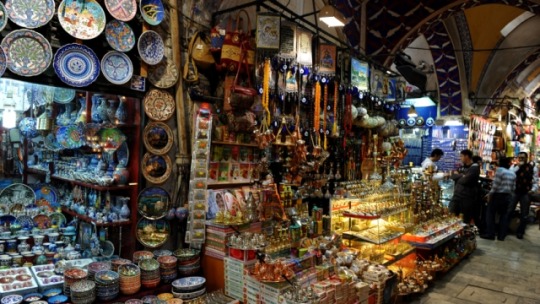
If they did, exile awaited them
The next day, however, he took measures for terminating the whole affair. He sent to Milenko and Peter the appointments which removed them from their supreme command to their seats inthe Senate. Should they accept them ? It was only too evident, since Jacob had gone over to their opponent, that, in the Senate also, where they would find themselves in the minority, they would possess but little influence. “ Should they refuse?” If they did, exile awaited them. Nevertheless, they determined to refuse, hoping that their request to live as private individuals in their respective districts might be granted. As their power, however, depended less on their legal rights than on their personal influence, their request, was refused.
On the following day, the decrees by which they were exiled were posted up at all the corners of the streets. In these they were reproached with all their misdeeds, real or pretended : Peter Dobrinjaz, with his flight from Deligrade; his departure with Rodofinikin; his presumption in wishing to pass as Ambassador of the nation without having been appointed; and also the arrears in his account of the tolls he had received: lUilenko, with his rebellion at Poretsch; his illegal appropriation of Russian subsidies; to pay his own Rckjares; and similar arbitrary acts. Then they were told: “ Here is Austria; there is Turkey ; there are Wallachia and Russia : Choose to which of them you prefer to go.” They chose Russia.
Kara George accordingly had them conducted, under an escort of Cossacks and Servians, through the district of Poscharewaz to the Danube : having previously occupied Poretsch and Kladawo with troops upon whom he could depend.
Shortly after their departure, a letter arrived at Belgrade from Milosch, promising his adherence to the two Gospodars. Having succeeded to Milan’s position, he pursued a similar policy; knowing that his power especially would be curtailed by the new regulations. Dobrinjaz and Milenko had already passed the Danube, when a movement in their favour was manifested in their districts. Kara George, who had so fully succeeded in the main point, employed likewise on this occasion the means best suited for his object. It was probable that the common troops might refuse to fight against their equals and friends. Instead of them, he therefore assembled only Bekjares and the Woiwodes with their Momkes; and by their means he, without difficulty, crushed the rebellion in its commencement.
When Milosch had arrived with the other Woiwodes, Kara George had no difficulty in calling him to account for his letter ; which had fallen into the hands of Mladen. Milosch was treated with great indulgence, and every opportunity was afforded him to deny the authorship of the letter: he, however, acknowledged it. It was suggested that probably his confidant Dmitri had led him to write it but Milosch avowed that it was entirely his own act. Notwithstanding this, he was allowed to depart unpunished: probably, because he was not yet possessed of sufficient power to be an object of apprehension. His promise of implicit obedience in future to the Commander in chief and the Senate, was deemed sufficient.
Leonti, who was not yet to be trusted, was removed to Kragujewaz. With the new Russian Plenipotentiary Nedoba the government was on very good terms.
Thus was destroyed the power of the great Gospodars; at one time so firmly rooted amongst the people. Kara George remained Lord and Master of the Servian country. The Woiwodes, who continued to rule it, at times, with a power which was not always well regulated were almost, without exception, appointed by, or dependent upon him; and not one of them was sufficiently independent to resist him. The Senate, in which the places of Peter and Milcnko were filled by men devoted to Kara George, conducted the administration according to the views of the Commander in chief, and laid no claim to independence. A public authority was thus constituted; but it was concentrated entirely in the hands of Kara George : lie was the Monarch of this little state. The most powerful men in the country were powerful only from having allied themselves closely with him.
0 notes
Photo
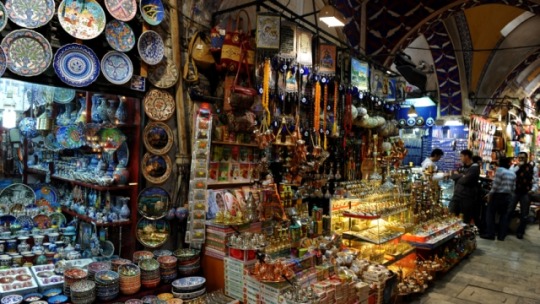
If they did, exile awaited them
The next day, however, he took measures for terminating the whole affair. He sent to Milenko and Peter the appointments which removed them from their supreme command to their seats inthe Senate. Should they accept them ? It was only too evident, since Jacob had gone over to their opponent, that, in the Senate also, where they would find themselves in the minority, they would possess but little influence. “ Should they refuse?” If they did, exile awaited them. Nevertheless, they determined to refuse, hoping that their request to live as private individuals in their respective districts might be granted. As their power, however, depended less on their legal rights than on their personal influence, their request, was refused.
On the following day, the decrees by which they were exiled were posted up at all the corners of the streets. In these they were reproached with all their misdeeds, real or pretended : Peter Dobrinjaz, with his flight from Deligrade; his departure with Rodofinikin; his presumption in wishing to pass as Ambassador of the nation without having been appointed; and also the arrears in his account of the tolls he had received: lUilenko, with his rebellion at Poretsch; his illegal appropriation of Russian subsidies; to pay his own Rckjares; and similar arbitrary acts. Then they were told: “ Here is Austria; there is Turkey ; there are Wallachia and Russia : Choose to which of them you prefer to go.” They chose Russia.
Kara George accordingly had them conducted, under an escort of Cossacks and Servians, through the district of Poscharewaz to the Danube : having previously occupied Poretsch and Kladawo with troops upon whom he could depend.
Shortly after their departure, a letter arrived at Belgrade from Milosch, promising his adherence to the two Gospodars. Having succeeded to Milan’s position, he pursued a similar policy; knowing that his power especially would be curtailed by the new regulations. Dobrinjaz and Milenko had already passed the Danube, when a movement in their favour was manifested in their districts. Kara George, who had so fully succeeded in the main point, employed likewise on this occasion the means best suited for his object. It was probable that the common troops might refuse to fight against their equals and friends. Instead of them, he therefore assembled only Bekjares and the Woiwodes with their Momkes; and by their means he, without difficulty, crushed the rebellion in its commencement.
When Milosch had arrived with the other Woiwodes, Kara George had no difficulty in calling him to account for his letter ; which had fallen into the hands of Mladen. Milosch was treated with great indulgence, and every opportunity was afforded him to deny the authorship of the letter: he, however, acknowledged it. It was suggested that probably his confidant Dmitri had led him to write it but Milosch avowed that it was entirely his own act. Notwithstanding this, he was allowed to depart unpunished: probably, because he was not yet possessed of sufficient power to be an object of apprehension. His promise of implicit obedience in future to the Commander in chief and the Senate, was deemed sufficient.
Leonti, who was not yet to be trusted, was removed to Kragujewaz. With the new Russian Plenipotentiary Nedoba the government was on very good terms.
Thus was destroyed the power of the great Gospodars; at one time so firmly rooted amongst the people. Kara George remained Lord and Master of the Servian country. The Woiwodes, who continued to rule it, at times, with a power which was not always well regulated were almost, without exception, appointed by, or dependent upon him; and not one of them was sufficiently independent to resist him. The Senate, in which the places of Peter and Milcnko were filled by men devoted to Kara George, conducted the administration according to the views of the Commander in chief, and laid no claim to independence. A public authority was thus constituted; but it was concentrated entirely in the hands of Kara George : lie was the Monarch of this little state. The most powerful men in the country were powerful only from having allied themselves closely with him.
0 notes
Photo
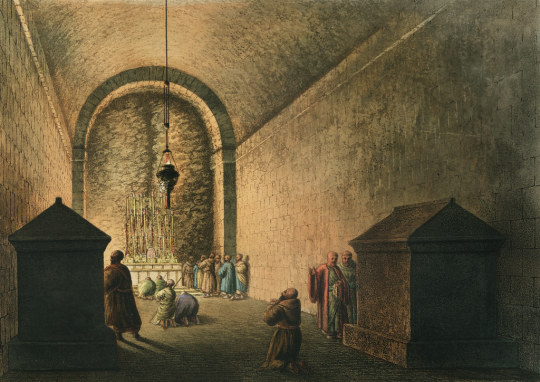
Shown himself disaffected towards the Bus sians
Milenko and Peter had no longer the courage to attempt any thing. Stephen Schiwkowitsch, the richest man in Belgrade, and an old enemy of Mladen’s, pressed the two chiefs once more to try their fortune: he would have had them commence immediately by an assault upon Mladen’s house. Peter and Milenko answered, “ We are short of men.” “ Are we not three of us,” replied Schiwkowitsch; “ and have we not our Momkcs ? Upon the first shot the inhabitants of the town will rise: for they hate Mladen; and the country people, who are greedy after booty, will rush in to our support.”
But the chiefs further objected that “ they were without ammunition even to begin with; ” whereupon Schiwkowitsch directly procured several sacksful, which he brought to the inn. But as has already been stated, both Milenko and Peter were so discouraged by their previous ill success, that, whilst Schiwkowitsch was making these proposals, they remained sitting by the fireside, without answering, and merely stirring the coals.
To be fully assured how matters stood, Kara George had now only to ascertain what lie was to expect from the Russian regiment, (the regiment Neuschlot,) and how its Colonel, Balia, was disposed towards him.
If he had at any time shown himself disaffected towards the Bus sians, it was because lie had suffered himself to be persuaded and indeed by the assertions of his adversaries themselves that his enemies and rivals had found in them a help and support. At length, he determined to learn the real state of affairs. One day when he, Peter Dobrinjaz, and Milenko, together with the Colonel, had been dining at Mladen’s, and afterwards, to honour the Foreigner, had accompanied him towards his home, Kara George perhaps designedly just as they arrived at the colonel’s abode, entered into a violent dispute with Milenko. Already he had ordered his Momkcs to take Milenko’s sword from him, when Balia, who lived in the same house, pleaded for him.
This was the critical moment which Kara George had expected, lie took off his cap and implored Balia, “by the bread of his Emperor,” to tell him whether he had come to support Milenko’s faction. Balia replied, that, he had come to render assistance to the nation under the command of Kara George. “ Then,” cried the latter, “let me take and kiss thy hand in lieu of that of the Emperor.” lie required no further assurance: he no longer thought of his dispute with Milenko, but was satisfied with knowing himself secure on this side also.
The next day, however, he took measures for terminating the whole affair. He sent to Milenko and Peter the appointments which removed them from their supreme command to their seats inthe Senate. Should they accept them ? It was only too evident, since Jacob had gone over to their opponent, that, in the Senate also, where they would find themselves in the minority, they would possess but little influence. “ Should they refuse?” If they did, exile awaited them. Nevertheless, they determined to refuse, hoping that their request to live as private individuals in their respective districts might be granted.
As their power, however, depended less on their legal rights than on their personal influence, their request, was refused. On the following day, the decrees by which they were exiled were posted up at all the corners of the streets. In these they were reproached with all their misdeeds, real or pretended : Peter Dobrinjaz, with his flight from Deligrade; his departure with Rodofinikin; his presumption in wishing to pass as Ambassador of the nation without having been appointed; and also the arrears in his account of the tolls he had received: lUilenko, with his rebellion at Poretsch; his illegal appropriation of Russian subsidies; to pay his own Rckjares; and similar arbitrary acts.
Then they were told: “ Here is Austria; there is Turkey ; there are Wallachia and Russia Choose to which of them you prefer to go.” They chose Russia. Kara George accordingly had them conducted, under an escort of Cossacks and Servians, through the district of Poscharewaz to the Danube : having previously occupied Poretsch and Kladawo with troops upon whom he could depend.
Shortly after their departure, a letter arrived at Belgrade from Milosch, promising his adherence to the two Gospodars. Having succeeded to Milan’s position, he pursued a similar policy; knowing that his power especially would be curtailed by the new regulations. Dobrinjaz and Milenko had already passed the Danube, when a movement in their favour was manifested in their districts. Kara George, who had so fully succeeded in the main point, employed likewise on this occasion the means best suited for his object. It was probable that the common troops might refuse to fight against their equals and friends. Instead of them, he therefore assembled only Bekjares and the Woiwodes with their Momkes; and by their means he, without difficulty, crushed the rebellion in its commencement.
0 notes
Photo
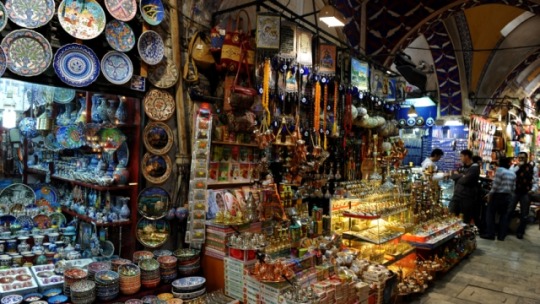
If they did, exile awaited them
The next day, however, he took measures for terminating the whole affair. He sent to Milenko and Peter the appointments which removed them from their supreme command to their seats inthe Senate. Should they accept them ? It was only too evident, since Jacob had gone over to their opponent, that, in the Senate also, where they would find themselves in the minority, they would possess but little influence. “ Should they refuse?” If they did, exile awaited them. Nevertheless, they determined to refuse, hoping that their request to live as private individuals in their respective districts might be granted. As their power, however, depended less on their legal rights than on their personal influence, their request, was refused.
On the following day, the decrees by which they were exiled were posted up at all the corners of the streets. In these they were reproached with all their misdeeds, real or pretended : Peter Dobrinjaz, with his flight from Deligrade; his departure with Rodofinikin; his presumption in wishing to pass as Ambassador of the nation without having been appointed; and also the arrears in his account of the tolls he had received: lUilenko, with his rebellion at Poretsch; his illegal appropriation of Russian subsidies; to pay his own Rckjares; and similar arbitrary acts. Then they were told: “ Here is Austria; there is Turkey ; there are Wallachia and Russia : Choose to which of them you prefer to go.” They chose Russia.
Kara George accordingly had them conducted, under an escort of Cossacks and Servians, through the district of Poscharewaz to the Danube : having previously occupied Poretsch and Kladawo with troops upon whom he could depend.
Shortly after their departure, a letter arrived at Belgrade from Milosch, promising his adherence to the two Gospodars. Having succeeded to Milan’s position, he pursued a similar policy; knowing that his power especially would be curtailed by the new regulations. Dobrinjaz and Milenko had already passed the Danube, when a movement in their favour was manifested in their districts. Kara George, who had so fully succeeded in the main point, employed likewise on this occasion the means best suited for his object. It was probable that the common troops might refuse to fight against their equals and friends. Instead of them, he therefore assembled only Bekjares and the Woiwodes with their Momkes; and by their means he, without difficulty, crushed the rebellion in its commencement.
When Milosch had arrived with the other Woiwodes, Kara George had no difficulty in calling him to account for his letter ; which had fallen into the hands of Mladen. Milosch was treated with great indulgence, and every opportunity was afforded him to deny the authorship of the letter: he, however, acknowledged it. It was suggested that probably his confidant Dmitri had led him to write it but Milosch avowed that it was entirely his own act. Notwithstanding this, he was allowed to depart unpunished: probably, because he was not yet possessed of sufficient power to be an object of apprehension. His promise of implicit obedience in future to the Commander in chief and the Senate, was deemed sufficient.
Leonti, who was not yet to be trusted, was removed to Kragujewaz. With the new Russian Plenipotentiary Nedoba the government was on very good terms.
Thus was destroyed the power of the great Gospodars; at one time so firmly rooted amongst the people. Kara George remained Lord and Master of the Servian country. The Woiwodes, who continued to rule it, at times, with a power which was not always well regulated were almost, without exception, appointed by, or dependent upon him; and not one of them was sufficiently independent to resist him. The Senate, in which the places of Peter and Milcnko were filled by men devoted to Kara George, conducted the administration according to the views of the Commander in chief, and laid no claim to independence. A public authority was thus constituted; but it was concentrated entirely in the hands of Kara George : lie was the Monarch of this little state. The most powerful men in the country were powerful only from having allied themselves closely with him.
0 notes
Photo

If they did, exile awaited them
The next day, however, he took measures for terminating the whole affair. He sent to Milenko and Peter the appointments which removed them from their supreme command to their seats inthe Senate. Should they accept them ? It was only too evident, since Jacob had gone over to their opponent, that, in the Senate also, where they would find themselves in the minority, they would possess but little influence. “ Should they refuse?” If they did, exile awaited them. Nevertheless, they determined to refuse, hoping that their request to live as private individuals in their respective districts might be granted. As their power, however, depended less on their legal rights than on their personal influence, their request, was refused.
On the following day, the decrees by which they were exiled were posted up at all the corners of the streets. In these they were reproached with all their misdeeds, real or pretended : Peter Dobrinjaz, with his flight from Deligrade; his departure with Rodofinikin; his presumption in wishing to pass as Ambassador of the nation without having been appointed; and also the arrears in his account of the tolls he had received: lUilenko, with his rebellion at Poretsch; his illegal appropriation of Russian subsidies; to pay his own Rckjares; and similar arbitrary acts. Then they were told: “ Here is Austria; there is Turkey ; there are Wallachia and Russia : Choose to which of them you prefer to go.” They chose Russia.
Kara George accordingly had them conducted, under an escort of Cossacks and Servians, through the district of Poscharewaz to the Danube : having previously occupied Poretsch and Kladawo with troops upon whom he could depend.
Shortly after their departure, a letter arrived at Belgrade from Milosch, promising his adherence to the two Gospodars. Having succeeded to Milan’s position, he pursued a similar policy; knowing that his power especially would be curtailed by the new regulations. Dobrinjaz and Milenko had already passed the Danube, when a movement in their favour was manifested in their districts. Kara George, who had so fully succeeded in the main point, employed likewise on this occasion the means best suited for his object. It was probable that the common troops might refuse to fight against their equals and friends. Instead of them, he therefore assembled only Bekjares and the Woiwodes with their Momkes; and by their means he, without difficulty, crushed the rebellion in its commencement.
When Milosch had arrived with the other Woiwodes, Kara George had no difficulty in calling him to account for his letter ; which had fallen into the hands of Mladen. Milosch was treated with great indulgence, and every opportunity was afforded him to deny the authorship of the letter: he, however, acknowledged it. It was suggested that probably his confidant Dmitri had led him to write it but Milosch avowed that it was entirely his own act. Notwithstanding this, he was allowed to depart unpunished: probably, because he was not yet possessed of sufficient power to be an object of apprehension. His promise of implicit obedience in future to the Commander in chief and the Senate, was deemed sufficient.
Leonti, who was not yet to be trusted, was removed to Kragujewaz. With the new Russian Plenipotentiary Nedoba the government was on very good terms.
Thus was destroyed the power of the great Gospodars; at one time so firmly rooted amongst the people. Kara George remained Lord and Master of the Servian country. The Woiwodes, who continued to rule it, at times, with a power which was not always well regulated were almost, without exception, appointed by, or dependent upon him; and not one of them was sufficiently independent to resist him. The Senate, in which the places of Peter and Milcnko were filled by men devoted to Kara George, conducted the administration according to the views of the Commander in chief, and laid no claim to independence. A public authority was thus constituted; but it was concentrated entirely in the hands of Kara George : lie was the Monarch of this little state. The most powerful men in the country were powerful only from having allied themselves closely with him.
0 notes
Photo
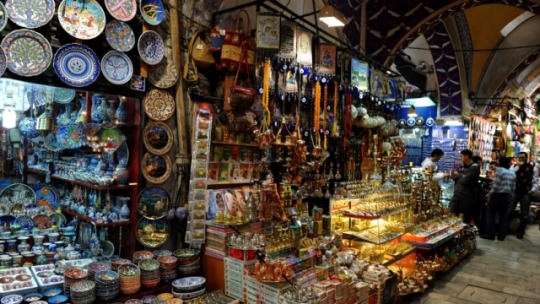
If they did, exile awaited them
The next day, however, he took measures for terminating the whole affair. He sent to Milenko and Peter the appointments which removed them from their supreme command to their seats inthe Senate. Should they accept them ? It was only too evident, since Jacob had gone over to their opponent, that, in the Senate also, where they would find themselves in the minority, they would possess but little influence. “ Should they refuse?” If they did, exile awaited them. Nevertheless, they determined to refuse, hoping that their request to live as private individuals in their respective districts might be granted. As their power, however, depended less on their legal rights than on their personal influence, their request, was refused.
On the following day, the decrees by which they were exiled were posted up at all the corners of the streets. In these they were reproached with all their misdeeds, real or pretended : Peter Dobrinjaz, with his flight from Deligrade; his departure with Rodofinikin; his presumption in wishing to pass as Ambassador of the nation without having been appointed; and also the arrears in his account of the tolls he had received: lUilenko, with his rebellion at Poretsch; his illegal appropriation of Russian subsidies; to pay his own Rckjares; and similar arbitrary acts. Then they were told: “ Here is Austria; there is Turkey ; there are Wallachia and Russia : Choose to which of them you prefer to go.” They chose Russia.
Kara George accordingly had them conducted, under an escort of Cossacks and Servians, through the district of Poscharewaz to the Danube : having previously occupied Poretsch and Kladawo with troops upon whom he could depend.
Shortly after their departure, a letter arrived at Belgrade from Milosch, promising his adherence to the two Gospodars. Having succeeded to Milan’s position, he pursued a similar policy; knowing that his power especially would be curtailed by the new regulations. Dobrinjaz and Milenko had already passed the Danube, when a movement in their favour was manifested in their districts. Kara George, who had so fully succeeded in the main point, employed likewise on this occasion the means best suited for his object. It was probable that the common troops might refuse to fight against their equals and friends. Instead of them, he therefore assembled only Bekjares and the Woiwodes with their Momkes; and by their means he, without difficulty, crushed the rebellion in its commencement.
When Milosch had arrived with the other Woiwodes, Kara George had no difficulty in calling him to account for his letter ; which had fallen into the hands of Mladen. Milosch was treated with great indulgence, and every opportunity was afforded him to deny the authorship of the letter: he, however, acknowledged it. It was suggested that probably his confidant Dmitri had led him to write it but Milosch avowed that it was entirely his own act. Notwithstanding this, he was allowed to depart unpunished: probably, because he was not yet possessed of sufficient power to be an object of apprehension. His promise of implicit obedience in future to the Commander in chief and the Senate, was deemed sufficient.
Leonti, who was not yet to be trusted, was removed to Kragujewaz. With the new Russian Plenipotentiary Nedoba the government was on very good terms.
Thus was destroyed the power of the great Gospodars; at one time so firmly rooted amongst the people. Kara George remained Lord and Master of the Servian country. The Woiwodes, who continued to rule it, at times, with a power which was not always well regulated were almost, without exception, appointed by, or dependent upon him; and not one of them was sufficiently independent to resist him. The Senate, in which the places of Peter and Milcnko were filled by men devoted to Kara George, conducted the administration according to the views of the Commander in chief, and laid no claim to independence. A public authority was thus constituted; but it was concentrated entirely in the hands of Kara George : lie was the Monarch of this little state. The most powerful men in the country were powerful only from having allied themselves closely with him.
0 notes
Photo

If they did, exile awaited them
The next day, however, he took measures for terminating the whole affair. He sent to Milenko and Peter the appointments which removed them from their supreme command to their seats inthe Senate. Should they accept them ? It was only too evident, since Jacob had gone over to their opponent, that, in the Senate also, where they would find themselves in the minority, they would possess but little influence. “ Should they refuse?” If they did, exile awaited them. Nevertheless, they determined to refuse, hoping that their request to live as private individuals in their respective districts might be granted. As their power, however, depended less on their legal rights than on their personal influence, their request, was refused.
On the following day, the decrees by which they were exiled were posted up at all the corners of the streets. In these they were reproached with all their misdeeds, real or pretended : Peter Dobrinjaz, with his flight from Deligrade; his departure with Rodofinikin; his presumption in wishing to pass as Ambassador of the nation without having been appointed; and also the arrears in his account of the tolls he had received: lUilenko, with his rebellion at Poretsch; his illegal appropriation of Russian subsidies; to pay his own Rckjares; and similar arbitrary acts. Then they were told: “ Here is Austria; there is Turkey ; there are Wallachia and Russia : Choose to which of them you prefer to go.” They chose Russia.
Kara George accordingly had them conducted, under an escort of Cossacks and Servians, through the district of Poscharewaz to the Danube : having previously occupied Poretsch and Kladawo with troops upon whom he could depend.
Shortly after their departure, a letter arrived at Belgrade from Milosch, promising his adherence to the two Gospodars. Having succeeded to Milan’s position, he pursued a similar policy; knowing that his power especially would be curtailed by the new regulations. Dobrinjaz and Milenko had already passed the Danube, when a movement in their favour was manifested in their districts. Kara George, who had so fully succeeded in the main point, employed likewise on this occasion the means best suited for his object. It was probable that the common troops might refuse to fight against their equals and friends. Instead of them, he therefore assembled only Bekjares and the Woiwodes with their Momkes; and by their means he, without difficulty, crushed the rebellion in its commencement.
When Milosch had arrived with the other Woiwodes, Kara George had no difficulty in calling him to account for his letter ; which had fallen into the hands of Mladen. Milosch was treated with great indulgence, and every opportunity was afforded him to deny the authorship of the letter: he, however, acknowledged it. It was suggested that probably his confidant Dmitri had led him to write it but Milosch avowed that it was entirely his own act. Notwithstanding this, he was allowed to depart unpunished: probably, because he was not yet possessed of sufficient power to be an object of apprehension. His promise of implicit obedience in future to the Commander in chief and the Senate, was deemed sufficient.
Leonti, who was not yet to be trusted, was removed to Kragujewaz. With the new Russian Plenipotentiary Nedoba the government was on very good terms.
Thus was destroyed the power of the great Gospodars; at one time so firmly rooted amongst the people. Kara George remained Lord and Master of the Servian country. The Woiwodes, who continued to rule it, at times, with a power which was not always well regulated were almost, without exception, appointed by, or dependent upon him; and not one of them was sufficiently independent to resist him. The Senate, in which the places of Peter and Milcnko were filled by men devoted to Kara George, conducted the administration according to the views of the Commander in chief, and laid no claim to independence. A public authority was thus constituted; but it was concentrated entirely in the hands of Kara George : lie was the Monarch of this little state. The most powerful men in the country were powerful only from having allied themselves closely with him.
0 notes
Photo

If they did, exile awaited them
The next day, however, he took measures for terminating the whole affair. He sent to Milenko and Peter the appointments which removed them from their supreme command to their seats inthe Senate. Should they accept them ? It was only too evident, since Jacob had gone over to their opponent, that, in the Senate also, where they would find themselves in the minority, they would possess but little influence. “ Should they refuse?” If they did, exile awaited them. Nevertheless, they determined to refuse, hoping that their request to live as private individuals in their respective districts might be granted. As their power, however, depended less on their legal rights than on their personal influence, their request, was refused.
On the following day, the decrees by which they were exiled were posted up at all the corners of the streets. In these they were reproached with all their misdeeds, real or pretended : Peter Dobrinjaz, with his flight from Deligrade; his departure with Rodofinikin; his presumption in wishing to pass as Ambassador of the nation without having been appointed; and also the arrears in his account of the tolls he had received: lUilenko, with his rebellion at Poretsch; his illegal appropriation of Russian subsidies; to pay his own Rckjares; and similar arbitrary acts. Then they were told: “ Here is Austria; there is Turkey ; there are Wallachia and Russia : Choose to which of them you prefer to go.” They chose Russia.
Kara George accordingly had them conducted, under an escort of Cossacks and Servians, through the district of Poscharewaz to the Danube : having previously occupied Poretsch and Kladawo with troops upon whom he could depend.
Shortly after their departure, a letter arrived at Belgrade from Milosch, promising his adherence to the two Gospodars. Having succeeded to Milan’s position, he pursued a similar policy; knowing that his power especially would be curtailed by the new regulations. Dobrinjaz and Milenko had already passed the Danube, when a movement in their favour was manifested in their districts. Kara George, who had so fully succeeded in the main point, employed likewise on this occasion the means best suited for his object. It was probable that the common troops might refuse to fight against their equals and friends. Instead of them, he therefore assembled only Bekjares and the Woiwodes with their Momkes; and by their means he, without difficulty, crushed the rebellion in its commencement.
When Milosch had arrived with the other Woiwodes, Kara George had no difficulty in calling him to account for his letter ; which had fallen into the hands of Mladen. Milosch was treated with great indulgence, and every opportunity was afforded him to deny the authorship of the letter: he, however, acknowledged it. It was suggested that probably his confidant Dmitri had led him to write it but Milosch avowed that it was entirely his own act. Notwithstanding this, he was allowed to depart unpunished: probably, because he was not yet possessed of sufficient power to be an object of apprehension. His promise of implicit obedience in future to the Commander in chief and the Senate, was deemed sufficient.
Leonti, who was not yet to be trusted, was removed to Kragujewaz. With the new Russian Plenipotentiary Nedoba the government was on very good terms.
Thus was destroyed the power of the great Gospodars; at one time so firmly rooted amongst the people. Kara George remained Lord and Master of the Servian country. The Woiwodes, who continued to rule it, at times, with a power which was not always well regulated were almost, without exception, appointed by, or dependent upon him; and not one of them was sufficiently independent to resist him. The Senate, in which the places of Peter and Milcnko were filled by men devoted to Kara George, conducted the administration according to the views of the Commander in chief, and laid no claim to independence. A public authority was thus constituted; but it was concentrated entirely in the hands of Kara George : lie was the Monarch of this little state. The most powerful men in the country were powerful only from having allied themselves closely with him.
0 notes